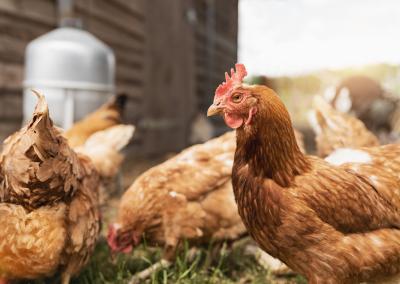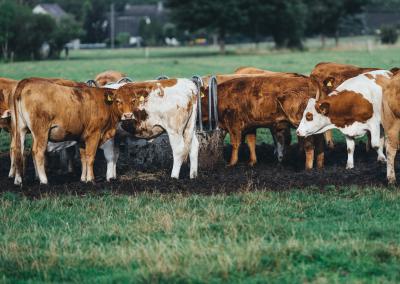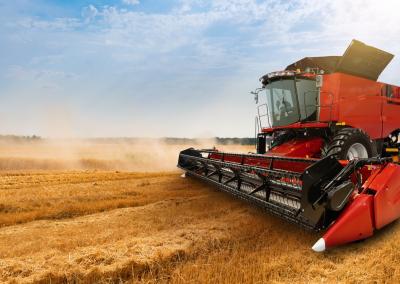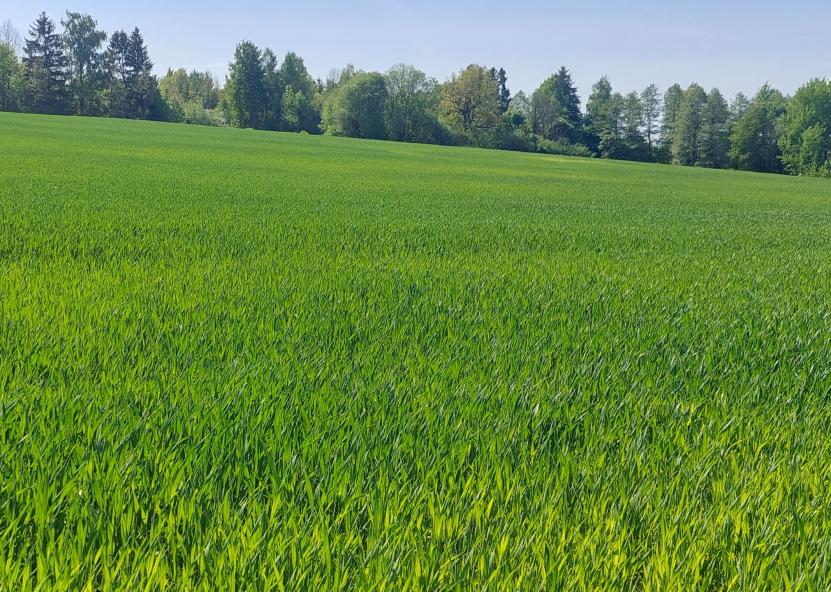As crop declarations draw to a close, criticism of complicated procedures, lack of specialists
As one of the most important processes in agriculture comes to an end on Monday, crop and land declaration, the Ministry of Agriculture (MAA) says that farmers have managed to declare their crops on time, and that 4% of the declared crop area was still unconfirmed as of Friday morning.
At the same time, farmers' representatives stressed that declaring crops this year has been more difficult than in 2023, the first year of the new agricultural strategy, – mainly due to the new European Union (EU) requirement to declare coastal strips.
„The declaration itself is in general more complicated than last year, (...) it has taken longer time“, – BNS was told by the Chairman of the Agriculture Council Ignas Hofmanas.
Farmers have also criticised politicians for the annual delays in approving crop declaration rules. Farmers would like them to be ready for next year in the autumn.
Some farmers also miss having extension agents in their districts, and their number is decreasing.
Declaration has become harder and longer
According to the data from the Agricultural Data Centre, just over 111,000 farmer applications had been validated by Friday morning, bringing the total area of declared crops to more than 2.905 million hectares. There were still 1317 pending applications with a total area of 104.8 thousand hectares.
„Many districts have already completed their declarations and have nothing to do. In the whole of Lithuania, about 4% have been plotted but not yet confirmed. (...) We already have a thousand hectares more plotted than last year," Deputy Minister of Agriculture Egidijus Giedraitis told BNS.
„Farmers seem to have caught up“, – he stressed.This year's crop area in Lithuania is higher than in 2023, when 116.1 thousand applicants declared 2.904 million ha.
According to the Deputy Minister, more areas have been declared because this year farmers are not allowed to cultivate land on the banks of water bodies and spread mineral fertilisers, plant protection and other products there. As part of the EU's Common Agricultural Policy, work on demarcating and, where necessary, declaring buffer strips alongside water bodies has begun in full this year.
„It used to be different, some people used to cultivate the land up to the slope of the ditch, but this year it is no longer possible to do so, where the crops have been replaced by buffer strips“, – said E. Giedraitis.
According to I. Hofmanas, this year the process is more difficult because of the obligation to declare buffer strips near water bodies, drainage ditches.
„Declaring these strips poses quite a challenge. It is possible (...) not to claim aid for them, but it is compulsory to declare them under the rules. It is problematic to do the act itself, it has to be done with great precision," he told BNS.
For his part, the President of the Chamber of Agriculture, Arūnas Svitojus, said that the rules for declaring crops are set too late every year – they should be adopted in autumn, more than six months before the start of the declaration process.
„The rules for declaring crops should be adopted, I think, at least in September, so that when you sow your winter crops in the winter you know what you will have next year. Now you sow winter wheat, you prepare for winter, but they tell you that there will be completely different rules," Svitojus told BNS.
„The constant change of rules, the volatility, is knocking farmers out of the woods and causing stress and financial difficulties. These things need to be done much earlier," he said.
Problems with consultation
Although it is both harder and longer to declare crops this year, there are fewer extension officers in the districts, Mr Hofman said. In some districts, he said, there are around 40% fewer of them than last year.
„The number of specialists in the districts has dropped significantly. (...) Of course, not everywhere, very unevenly, but the problem is definitely with the people“, – he said.
„In 2024, the number of these specialists was reduced, and these specialists are very much needed. (...) These specialists are closest to the farmers and the shortage is very acute," the farmer representative added.
I. Hofman said that farmers with better computer literacy skills prefer to declare their crops online, but they still tend to go to specialists to check for errors and to validate their applications.
„They are hesitant to take that responsibility themselves because, God forbid, they will have done something wrong and will be sanctioned,“ noted the head of the Agriculture Council.
Vice Minister Giedraitis assured that the Ministry of Agriculture has not received any signals from municipalities about the lack of specialists: „There are no such talks so far, but, of course, if it is felt that the municipalities are not able to do so, solutions would be sought.
„There was once an initiative where the Agricultural Advisory Service also wanted to be involved in the process. Since it (farmer counselling – BNS) is a delegated function, funds are allocated for it, then the municipalities rebelled, so that they would not be deprived of this service for farmers, – said E. Giedraitis.
Hope for more popularity of eco-schemes
The 2023-2027 Strategic Plan for Agriculture introduced organic farming systems, known as ecoschemes, last year. Farmers can increase their direct payments by taking part in one of these farming activities that benefit the climate, the environment and animal welfare.
According to Giedraitis, although there is no data yet on how active farmers have been in eco-schemes this year, they are expected to be more popular than last year.
„We expect, and we have spoken with the Minister (Minister of Agriculture Kęstutis Navickas – BNS), that participation in eco-schemes is likely to increase this year, because it is much easier to come, almost everyone can come to eco-schemes. So we expect more participation," said Giedraitis.
He said that this year's interim data shows that farmers have been more active in declaring landscape elements, with around twice as many areas declared. In 2023, maintenance of landscape features was the least popular among farmers.







































































































